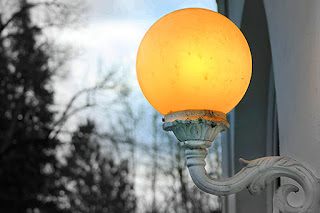Almost all homes have smells. Did you cook dinner last night? Did you kick off those year-old work shoes in the entryway? Do you have a pet? Is there dampness anywhere in your home? Chances are that your home smells too but you don’t notice it.
While data suggests that humans can detect at least a trillion different smells, we adapt to smells very quickly. New research even suggests that the nose can outperform the eyes and ears, so smell is an important consideration when you sell a home.
Imagine that you’ve just purchased a scented plug-in device for your home. Think of how strong it smells at first. After a few hours you hardly notice it. Scientists aren’t exactly sure why our noses adapt to smells, but point to detection of the subtlest change in the scent of our environment as a potential safety mechanism.
We need to be able to adapt and notice new smells quickly. For our ancestors, this ability could alert a change in smell in some animal they’d killed, signifying it was rotting and unsafe to eat. This phenomenon, known as sensory adaptation, is something we experience most intensely with smells and is why people can’t smell their own home.
Listing a St. Louis area home? Clear away bad smells.
Listing your home for sale? Then figure out what smells might be lingering in your home. First, give your home a good deep cleaning. A few days later, after the smell of the cleaning products has gone, ask a friend to come over and tell you what smells they notice. Smells often found in homes include: laundry and shoe odors, previously cooked food, pets, smoke and mold. Once you discover the smells and the source of the smells in your home, remove them.
Food. Rid your home of food smells by cleaning all food-related appliances and washing any draperies near the kitchen. When cooking in a home listed for sale, avoid cooking fish or using strong smelling spices and be sure to use a fan or leave the windows open when cooking. Don’t forget to remove food trash from the home promptly.
Laundry. Don’t let laundry pile up to avoid clothing smells. Those stinky work shoes? Try airing them out outdoors before bringing them in. Then put them in a plastic bag and tuck them away.
Pets. Pet smells can be some of the strongest. Of course be sure that litter boxes are as clean as possible. If a pet has ever gone to the bathroom on a rug or carpet, steam clean it. Also, keeping pets clean will help eliminate their body odor.
Smoke. If you smoke, you must stop smoking in your home while it is on the market. Smoke sticks to everything. Smokers need to deep clean their home before it hits the market. This includes: washing draperies, cleaning carpets, washing windows, washing or painting walls and even changing all the light bulbs. Yes, smoke can stick to light bulbs and when they are turned on and heat up, the smoke smell will return.
Mold. Mold smells are some of the worst to potential homebuyers as they can signal leaks and water issues at a home. Use a dehumidifier and clean any mold. If there is a significant mold issue call a professional to help remediate as it can make you sick.
List with The Boehmer Team
With over 60 years of experience, our team has helped hundreds of St. Louis and St. Charles County area homeowners sell a home. We offer a home consultation and even staging if needed to present your home at it’s best. Then we utilize our custom maximum exposure home marketing system to help you get the most from your home sale. Contact The Boehmer Team today to learn more about how we help homeowners sell a home.
References:
http://nymag.com/scienceofus/2014/08/why-cant-you-smell-your-own-home.html
http://www.brainfacts.org/sensing-thinking-behaving/senses-and-perception/articles/2015/making-sense-of-scents-smell-and-the-brain/
http://www.brainfacts.org/sensing-thinking-behaving/senses-and-perception/articles/2015/making-sense-of-scents-smell-and-the-brain/
























